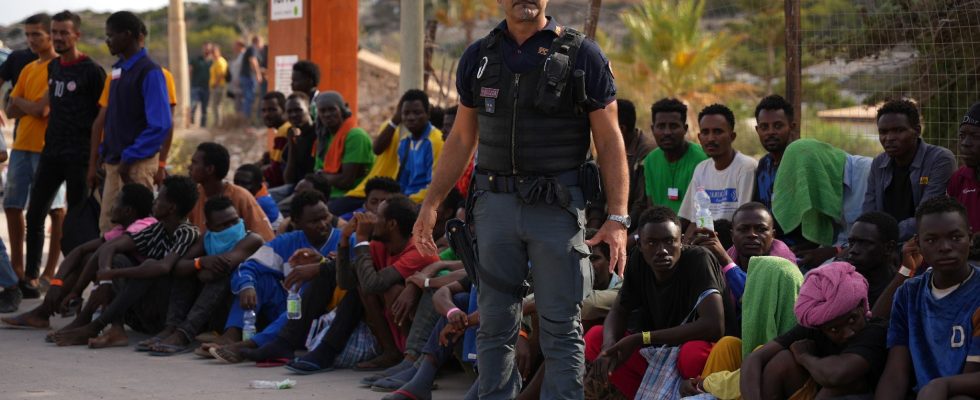This is the last weapon brandished by the European Union before the June elections. The Asylum and Migration Pact, in gestation since 2020, and which, after a forceps agreement between the Brussels institutions in December, must still be the subject of a decisive vote in the European Parliament on April 10 before adoption just before the election of June. A compromise pact, like any European agreement, both restrictive enough to satisfy public opinion increasingly concerned by the arrival of migrants, and lucid enough to activate a mechanism of cooperation and solidarity between countries. A text as essential as it is reasonable, despite the cries of horror from the entire opposition in France. Even Raphaël Glucksmann, who we knew was more courageous, promised to vote “against the majority of the texts” constituting the pact.
The reality is that time is running out. On the political side, the far right is riding the anti-migrant discourse. Since 2010, it has already gathered more than 20% of the votes in the legislative elections in a third of the EU countries. And it’s not over. On March 10, the Chega movement received 18% of the votes in Portugal. On April 6, Slovak voters chose Peter Pellegrini, a populist close to Prime Minister Fico, as president. As for Jordan Bardella, head of the National Rally list, he is leading the polls…
On the border side, the Mediterranean continues to welcome new flows of migrants. In 2023, Frontex, the agency responsible for monitoring European borders, noted 380,000 irregular entries at the borders of the European Union, a figure not reached since the peak of 2015/2016. This dynamic continued at the start of the year. Frontex predicts for 2024 “the possibility of an increase in migration and cross-border crime”.
Will the new pact allow better control of these migratory waves? “After the total failure suffered by the European Union in 2015-2016, it had to show that it was capable of dealing with the question of the arrival of people at its borders,” comments Virginie Guiraudon, CNRS research director in science. policy at the Center for European Studies at Sciences Po. However, given the countless legal arcana and the lack of political will of certain States, the expert fears that the implementation of the new pact will result in “a bureaucratic gas factory” , the costs of which could soar.
“When it comes to migration policy, the best initiatives are not only difficult to take, but complicated to implement,” recognizes MEP Nathalie Loiseau*. But she adds: “Those who judge that nothing can be done have not tried, and do not seem to be sufficiently moved that the Mediterranean is the tomb of nearly 30,000 deaths since 2014.” Including more than 3000 last year alone…
*If Europe did not exist, Nathalie Loiseau, Editions de l’Observatoire, 2024.
